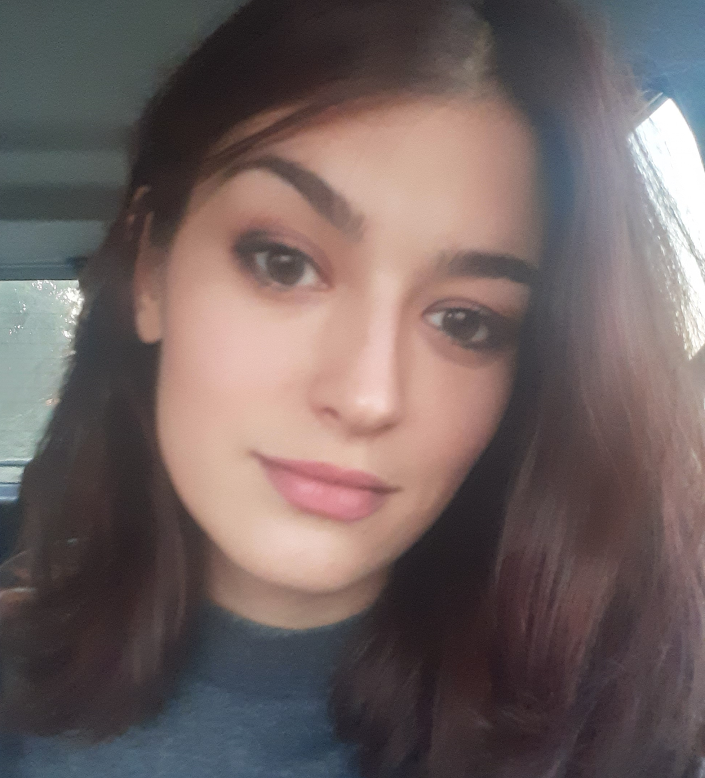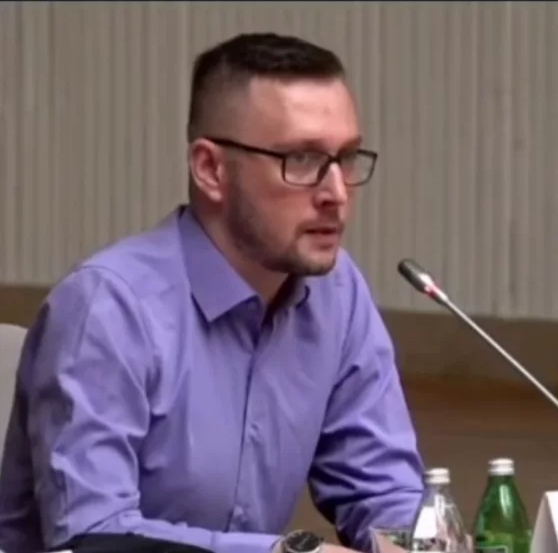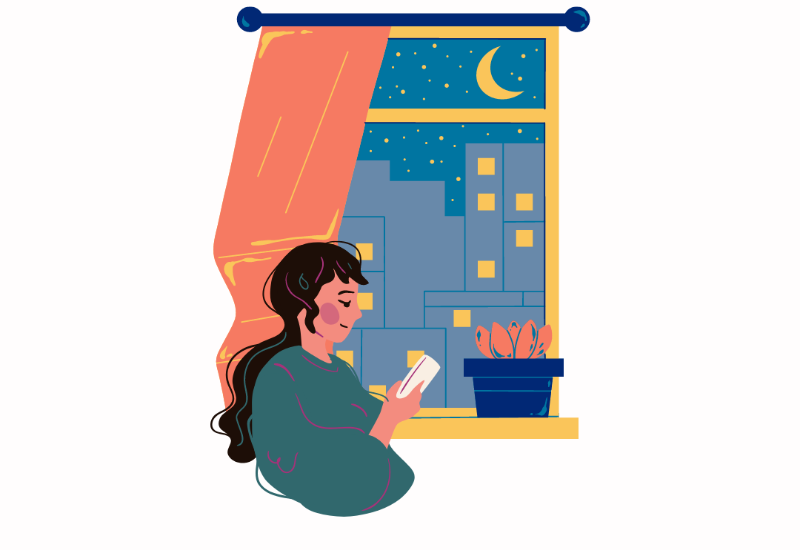The "Heart" Center has been working on suicide prevention and providing emotional support to people in crisis for 31 years.
By phone 0800-300-303, email, and the website, volunteers of the "Heart" Center provide daily support to those who contact them. They know what it is like to actively listen and accept the interlocutor. They openly approach the most painful topics and believe that people can acknowledge and respect the feelings of others.
We learned more about the work of the "Heart" Center and the thirty-year struggle for mental health from the coordinator Teodora Đukić and the director of the Center, Goran Knezević.
How was the "Heart" Center established? How did your mission develop?
Teodora: Heart Center is a voluntary, non-governmental, non-profit organization that provides emotional support to people in crisis and suicide prevention. It was founded in 1991 as a Counseling Center for psychological assistance to war participants, and at the initiative of a group of professors from the University of Novi Sad, Prof. dr Slobodanka Stanković and prof. Dr. Slavica Selaković-Buršić among others. A group of enthusiasts, who wanted to help and contribute in these difficult times, gathered and opened the telephone lines for the first time. That 1991 was when the first person heard, "Good afternoon, Heart Center. Here you go."
Due to the high suicide rate, in 1993, the Center extended its support to all citizens who may not have been directly affected by the war. Then the Center changed its name to "Heart - Psychological Counseling for Crisis Situations and Victims of War" when it became part of a network of centers dealing with crisis interventions and suicide prevention - Befrienders International (today Befrienders Worldwide).
Today's name, "Heart - Center for Emotional Support and Suicide Prevention", was established in 2000. The users of our services are all people going through an emotional crisis and want to talk to someone about it.

Teodora Đukić, Coordinator
What was your motivation for working in the non-profit sector?
Teodora: I believe that each of us decided to work in the non-profit sector for our own very different reasons. In response to this question, the first sentence in some of the helping activities is often the same - "I want to help people."
Although we are all connected by the idea that we want to dedicate our time and energy to helping others, there is a diverse internal motives for that decision. For me, it was a desire to feel valuable and useful through volunteerism and working with people. Volunteers often talk to each other about this topic. The goal of these conversations is that motivation, which keeps us in the "Heart," survive for a long time. Indeed, it is not always easy to find the strength to continue working in the non-profit sector, then we often go back to the beginning and remind ourselves why we are here. It is always of great importance and encouragement for us when we see that we were able to help someone who called us that day, and that is why working in the Center is very stimulating and motivating. In addition to all that, fellow volunteers renew and encourage our motivation and energy with their enthusiasm, work, sense of belonging, and family atmosphere.
How has the COVID-19 crisis affected the work of the Center? What activities have you been most focused on in the last two years? Has the number of those seeking support increased compared to some other periods?
Teodora: During the COVID-19 pandemic, "Heart," like everything else on Earth, went through its challenges. We had a problem coming to our premises during the curfew, so we had to transfer all the work online. Then, due to the Center's internal policy and value system, in connection with anonymity and data protection, we decided to temporarily stop working on the phone and do only email and chat. The first period was really miserable for anyone, both our callers and us. Still, we persevered and got through those few months of working from home.
The number of calls had its oscillations and varied depending on the world situation. Still, I would say our work has been constant. Our callers rarely called just to talk about COVID-19, but it was often a side topic. We noticed that the pandemic crisis worsened their mental health and aroused the need for some to talk about it for the first time. The work during COVID-19 left a mark on all of us. In addition to the work itself, which has been constant, our other activities have been partially or entirely suspended, thus opening the door to other problems, the consequences of which we are still struggling with today.
What activities are you currently most focused on? What are the most important plans and goals that you plan to realize in the future?
Goran: First of all, we are focused, as always, on being as accessible as possible to the people who need our help, which is reflected in the extension of working hours. The "Heart" Center is open 365 days a year, seven days a week from 2 pm to 11 pm, but now we are here on Saturdays and Sundays from 14h to 04h because the need for capacity expansion is evident, as the numbers of calls, emails, and chats sent to our Center tell us.
Also, our mission does not stop there. We try to spread awareness about mental health and mental health prevention through various activities, forums, education, cooperation with related centers and the Exit Festival, networking of the NGO sector, and cooperation with government institutions.
In addition, there is a campaign in cooperation with OPENS called "Watch the tone, watch the click" concerning ethical reporting on suicide. We consider it is essential to do it acceptably so as not to cause even more significant damage by sensationalist writing on this crucial topic.

Goran Knežević, Director
How is the Heart Center financed? What different types of donors do you work with, and how? In what ways can those who want to support the work of the Center?
Goran: Center "Heart" is a non-governmental, non-profit volunteer organization, we finance our work from various projects to which we apply, and in this regard, Center "Heart "does not have a permanent source of income but depends on projects and the goodwill of individuals and organizations that recognize the importance of our work and existences and help us to ensure uninterrupted work and to improve it.
All those who want to support us can find all the necessary information at www.centarsrce.org.
A large number of volunteers are engaged in the activities of the Heart Center daily. How do volunteers contribute to the work of the Center, and how important do you think volunteering is for the non-profit sector in general?
Teodora: Volunteers make up the "Heart" center. Without them, there would be no Center. With their enormous energy, love, and strength, each of them maintains and justifies the existence of our Center. I would say that each of us is authentic and, in his own way, contributes to everyday work, but also the progress of the Center and the improvement of mental health in our country. It is essential to mention that not all of our volunteers are psychologists and that we are from different fields. However, each of us went through long and intensive training, after which it was concluded that we have the qualities and values to be volunteers. Each of us decides from week to week to give his free time to someone who needs it, which is an excellent thing in itself. In addition, as the "Heart" develops and gains in importance, new tasks appear in the field of mental health and suicide prevention, cooperation with other organizations and institutions, where a large number of our volunteers choose to dedicate additional energy and work outside their regular shifts. In our work, the existence of teams dealing with internal and external tasks has helped. And so they make our work in shifts easier and better.
Volunteerism is essential for the non-profit sector and society as a whole. It teaches us to be selfless and not expect anything in return. I believe that a community in which volunteerism flourishes is a healthy society that wants to take care of its fellow citizens and make life in this country pleasant and better for all of us.
The topic you are dealing with is still sensitive and taboo. How do you work on raising awareness of its importance? What is the uniqueness of your work and the support you provide? How do you educate the public in the best and most effective way on suicide prevention and mental health care issues?
Goran: It seems to me that things are moving in this regard and that we as a society are becoming more open talking about it, but also seek help when we need it, and we are pleased, but we should never stop raising awareness of the importance mental health, so that our presence in the media, institutions, education, culture continues through various forums, education and training on the need for help and on mental health itself, the phenomenon of suicide, prejudices, and misconceptions related to suicide and it is fundamental to show people that they are not alone, that they do not have to go through a difficult period without support.
Do you think that the education of the media is necessary, as they often report on these topics unprofessionally, and are you trying to act in the direction of changing that?
Teodora: Absolutely. Unfortunately, we have witnessed many individual attempts and suicides in recent times. As it deals with suicide, our Center paid special attention to the media and how they report on mental health matters. Unfortunately, we noticed that the way certain media reported had the outlined unprofessional and sensationalist reporting on the topic of suicide. So we wrote a manual for journalists on the subject of suicide reporting and organized forums and panel discussions on this topic. In cooperation with the Youth Association of Novi Sad - Youth Capital of Europe (OPENS), we have launched a campaign, "Watch the tone, watch the click," where we talked about this topic through conferences and panel discussions with our esteemed guests. Still, we can't say that our job is done. We feel like we have just started, even though a lot of work is behind us. I believe that we will need a lot of time to reach the mentality and way of thinking which will help us solve the problem of sensationalist reporting. However, it is the task of all of us, from organizations and experts in the mental health field to journalists and readers who choose which content meets their standards.
Do you cooperate with other non-profit organizations, foundations, and institutions, which and how?
Goran: We have excellent cooperation with a large number of NGOs in Novi Sad, and we are all gathered together and networked in the "Constellation of Support," where we conduct various street actions, forums, education, training, but also exchange experiences, help each other and improve our work. We would be happy if the cooperation were extended to the public sector and institutions dealing with preserving and improving mental health at all three levels, primary, secondary, and tertiary. I believe that something like this would significantly change things in terms of prevention, education, treatment, and rehabilitation of people who need help.
What are the biggest challenges you face, and what are the most significant successes that the Center has achieved in its work so far?
Goran: When we talk about challenges, it is difficult to talk about them because colleagues from the "Heart" Center are true heroes, so even those most difficult challenges with them pass much easier, but when we talk about successes, the fact that we exist 31 years without and one day a break in work speaks for itself. This is due to all the heroes who entirely voluntarily dedicate their free time in the most humane way to people who need a warm human word and the knowledge they do not need. I want to thank them and say how proud I am of them and how beautiful and important they are to this society.


Leave a comment